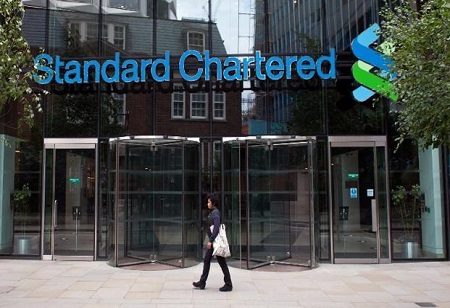
StanChart, IFC Deal To Increase Global Trade By $6.4 Billion

 To meet market demand, this updated facility is anticipated to facilitate up to $6.4 billion in commerce over the course of three years between Asia, the Middle East, Africa, and Latin America by assisting roughly 850 importers and exporters of necessary resources, basic goods, and other critical commodities.
To meet market demand, this updated facility is anticipated to facilitate up to $6.4 billion in commerce over the course of three years between Asia, the Middle East, Africa, and Latin America by assisting roughly 850 importers and exporters of necessary resources, basic goods, and other critical commodities.
Given the Bank's established network and correspondent banking relationships, the Standard Chartered GTLP facilities have demonstrated strong reach and impact in supporting trade in emerging markets, particularly those supported by the International Development Association (IDA), as well as low- and lower middle-income countries, since the launch of the initial facility in 2009. Together, these facilities have facilitated 17,746 transactions totaling over $20.5 billion in international trade through more than 150 EMIBs (Emerging Market Issuing Banks) in 37 different countries without any defaults.
The GTLP plan is still evolving to take into account shifting market conditions and now includes a strong climate component in addition to aiming for more involvement in the IDA markets and food security areas.
"We are delighted to renew the GTLP, a longstanding partnership with the IFC since 2009 that is testament to both organisations’ unwavering commitment to narrow the trade finance gap,” said Sunil Kaushal, Regional Chief Executive Officer for Africa & Middle East at Standard Chartered.
"As a leading trade bank, we have a crucial role to play in enhancing the accessibility to the capital and liquidity needed to facilitate global trade, and to do so in a sustainable manner. Particularly in today’s challenging post pandemic macro environment, such partnerships can help continue to provide the much-needed liquidity to boost trade flows and drive economic growth. This partnership is at the core of what we do as a Bank and in complete alignment with our stand of Resetting Globalisation.”
The GLTP facility, which brings together governments, international development and financial organisations, as well as private sector banks, has demonstrated to be a highly effective method of channelling financing to support emerging market trade flows.

